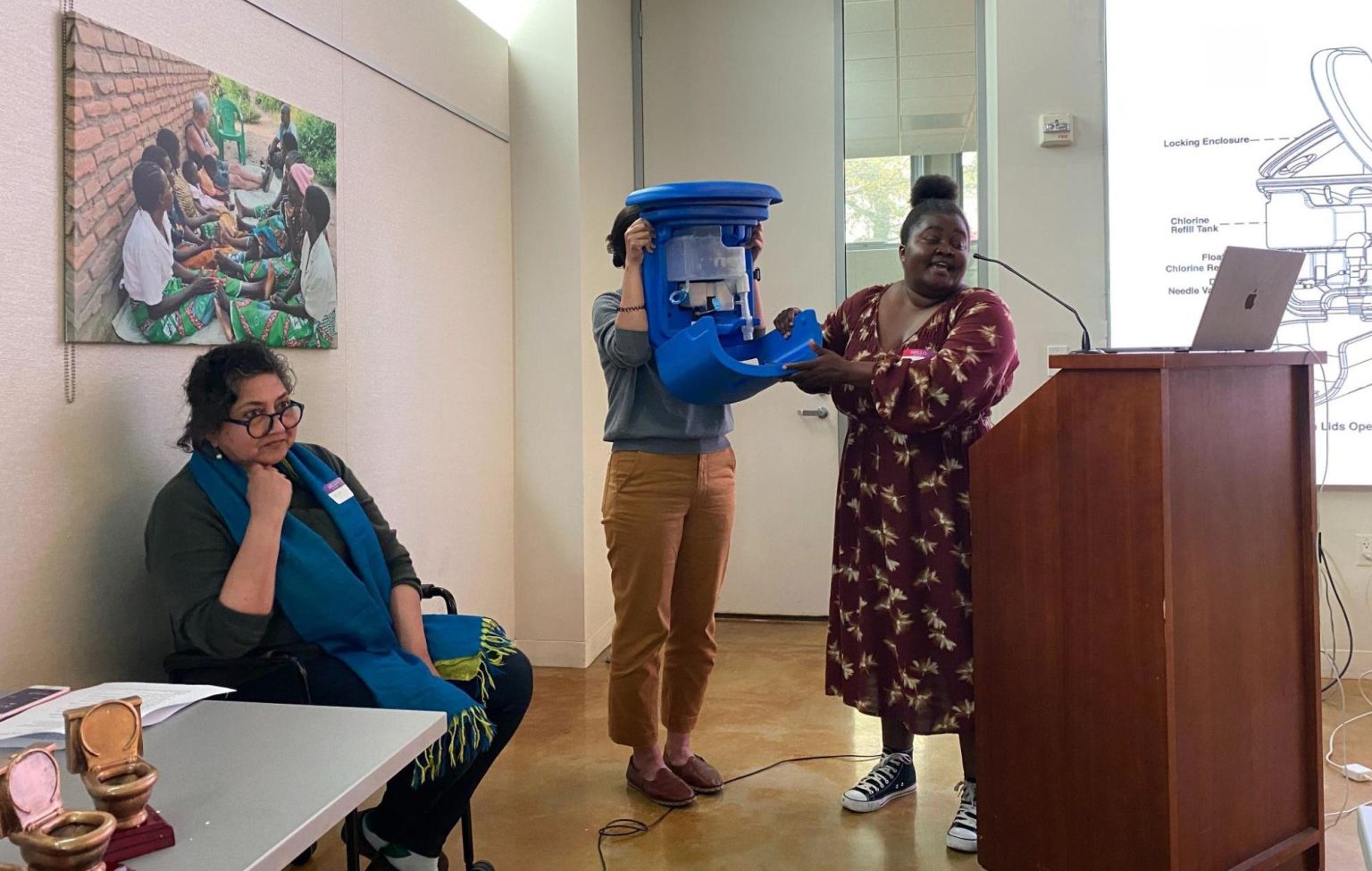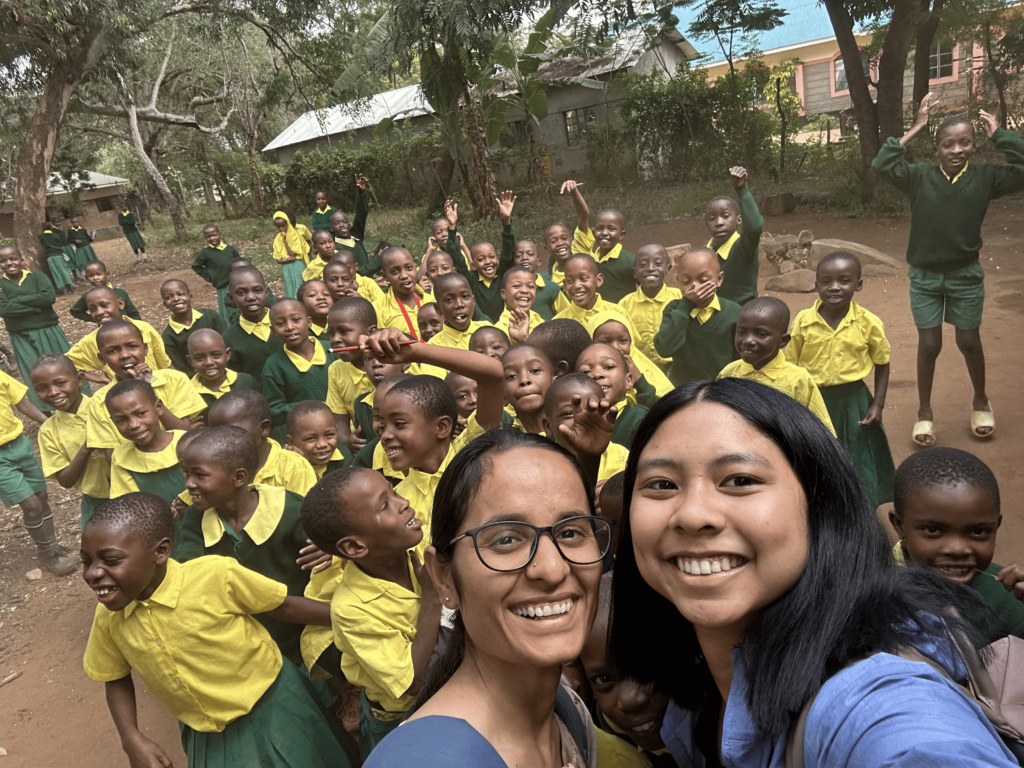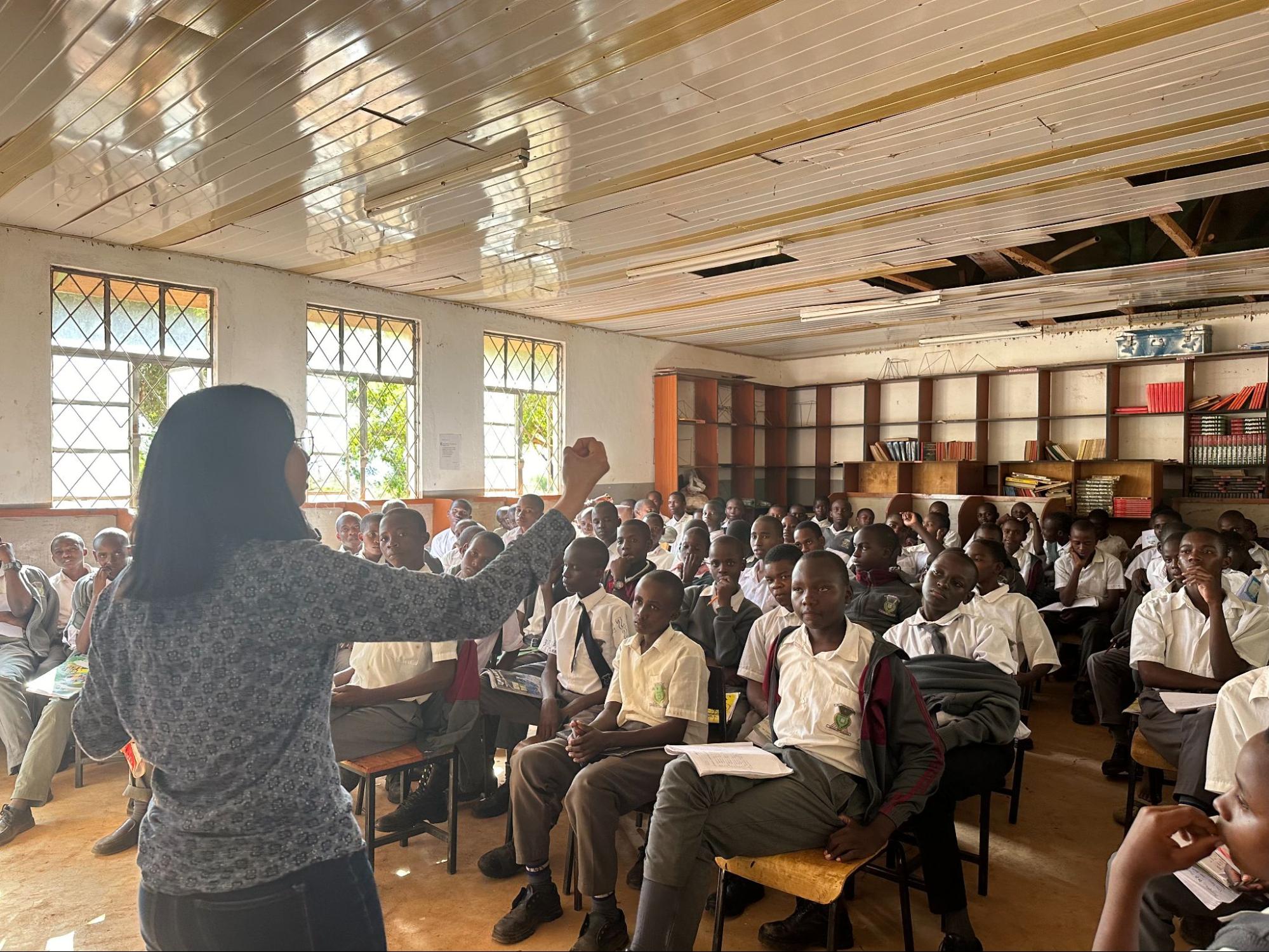In 2007, the Blum Center hosted UC Berkeley’s first Water, Sanitation, and Hygiene (WASH) symposium for scholars and development practitioners. The event was the first of its kind in the Bay Area, and for the next decade, Stanford and Berkeley hosted WASH events on alternating years. After a hiatus due the pandemic, the symposium was back this year for the first time since 2019. This time, it’s the Blum Center continuing the tradition, with a wider scope of research and a larger community since the original WASH event over 15 years ago.
Water, sanitation, and hygiene are crucial pillars of public health initiatives and in the fight against poverty. Issues like inadequate water access and poor sanitation disproportionately affect under-resourced communities, leading to waterborne diseases and socioeconomic impacts within vulnerable populations. Solutions are interdisciplinary, blending research findings and policy interventions in pursuit of infrastructure development, with communities’ contexts and needs at the core of WASH efforts. Practitioners range from chemical and environmental engineers to public health professionals.
On December 6, the Blum Center hosted graduate students, professors, and experts with one common connection — a commitment to sharing and expanding collective knowledge in the WASH sector. The event kicked off with an introduction from its head coordinators, Prof. Amy Pickering, Blum Center Distinguished Chair in Global Poverty and Practice, and Prof. Kara Nelson, Blum Chancellor’s Chair in Development Engineering. Icebreakers followed, where attendees broke out into teams to play a sanitation-inspired game.
The main attractions, however, were six longer research presentations and 17 quicker lightning talks, which included research developments that have concluded, are currently underway, or still in planning stages. They covered biological, environmental, and social issues, from cost assessments of water supplies to chlorination techniques for reducing maternal and neonatal diseases to proposing a compostable toilet.
The sheer scope of presentations demonstrated the multifaceted range of the field. “WASH challenges primarily affect low-resourced and underserved communities,” says Nelson. “Those in the field have to understand these problems from an interdisciplinary perspective.”
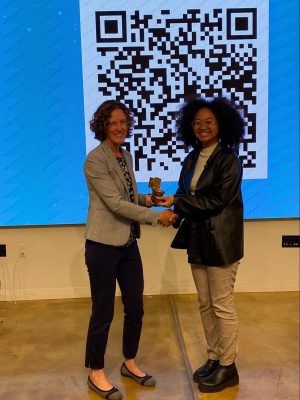
The end of the night featured a reception and awards. Joyce Kisiangani, a UC Berkeley PhD student, won for Best Visuals for her presentation introducing a low-cost passive-chlorination device for disinfecting water at the point of collection. Another UC Berkeley PhD student, J’Anna-Mare Lue, won for Most Creative for her presentation on water as a medium to address environmental inequity. Christine Pu, a PhD candidate at Stanford, was awarded Most Engaging for her discussion of how investments in water infrastructure transform rural livelihoods in Ethiopia.
The event was deliberately small and intimate, designed to cultivate in-depth conversations and small-group discussions. “It is an event by and for the people who participate in the WASH field,” Nelson says. Hannah Wharton, a environmental engineering PhD student in Pickering’s lab and a member of the WASH symposium student committee, agreed. “Connecting with other researchers and professionals in the WASH field is so important for making progress on the global inequities that we are all trying to eliminate,” she says. “Having people there from a variety of fields really speaks to the interdisciplinarity of WASH and the need for future events.”
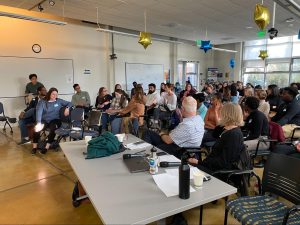
With around 60 attendees and plenty of time for networking, WASH aficionados were able to dive deep into the complexities of their peers’ projects. “Compared to the scale of the problems, we are a relatively small group of researchers working on them,” says Nelson. “We have to be resourceful and work in teams. And have a strong community that is supportive and lifts you up when you are feeling discouraged.”
When asked what they hoped to see in the future for WASH events, nearly every attendee had a similar answer: “To see more people!” They are certainly on track to meet this goal — each year, event planners have welcomed more and more first-time attendees. The increase in symposium attendance parallels new and expanding research projects in the field, like those of Kisiangani, Lue, and Pu. And as the WASH sector grows, these symposia are vital to encouraging collaboration and fostering a network where projects can succeed on an individual and community level.
“Next year,” Wharton says, “we want to host even more members of the community and continue increasing dialogue.”

